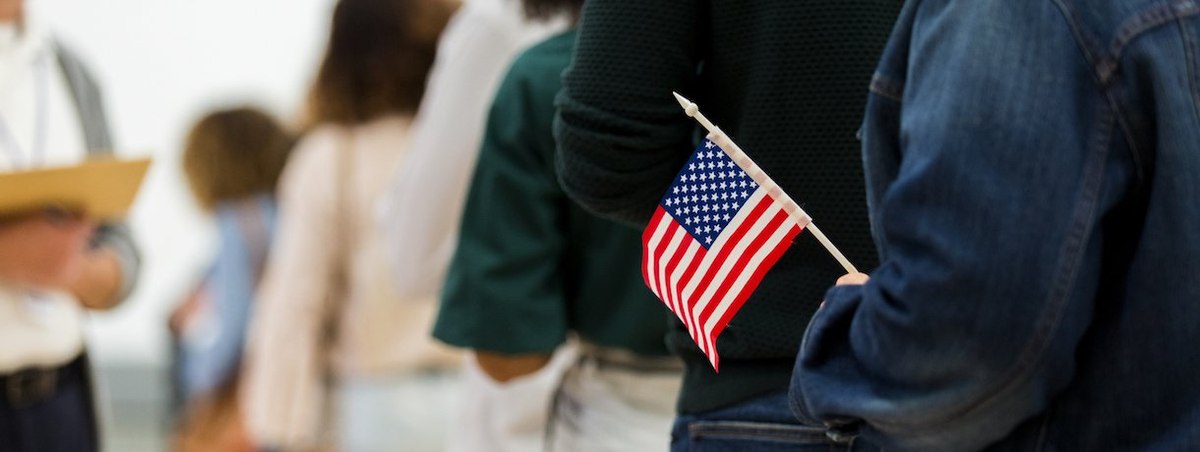As part of the process of becoming a naturalized U.S. citizen, applicants are required to take a civics test to evaluate their knowledge of U.S. history and government. To pass the verbal test, an applicant must correctly answer at least 6 out of 10 civics questions, drawn from a list of 100. To help prepare for the test, the government provides an online study tool that includes 20 multiple-choice versions of questions that may be asked in the real exam.
According to the government, 91% of applicants pass the civics portion of the naturalization test. But how would Americans fare on this test without advanced preparation? Recently, YouGov asked 1,000 U.S. citizens to answer 20 multiple-choice practice civics questions from the U.S. naturalization test. On average, Americans who provided a valid response to all 20 questions answered about 15 of them correctly. About four in five (85%) effectively pass the test, meaning they answer at least 12 out of 20 questions correctly — or at least 60%, the proportion of correct answers needed to pass the real test.
Older Americans and people with more advanced levels of education scored better on the test than average. American adults under 45 answered an average of 14 out of 20 questions correctly, while adults 45 and older answered an average of 17 correctly. People with more education also scored higher than average: Americans with postgraduate degrees answered an average of 18 correctly, while people with a high-school degree or less answered 14 correctly. There were no significant differences between the scores of Democrats and Republicans, nor were there large differences in the scores of men and women.
For each of 19 of the 20 questions asked, more than half of Americans answer correctly. The exception: When asked what Benjamin Franklin is famous for, only 46% correctly identify him as a U.S. diplomat. A significant share (29%) respond that he was the youngest member of the Constitutional Convention (he was the oldest member) and 21% incorrectly state that he was the third U.S. president (he was never president). The question that was answered correctly by the largest number of people (92%) – "What are two rights in the Declaration of Independence?" – had two answers considered correct (due to an error we made converting the original practice exam into a survey), including "life and liberty" and "life and the pursuit of happiness." The question answered correctly by the second-largest share of people (91%) is what the two major U.S. political parties are (Democratic and Republican).
When told that the questions they answered were examples from the civics portion of the U.S. naturalization test, three in four Americans (75%) say that the questions feel “about right” as a test of prospective citizens’ knowledge of the U.S. government and history, while 14% say they are too difficult and 11% say they are too easy. A majority (83%) say the questions are generally fair to ask prospective citizens, while 17% say they’re unfair. Three in four Americans (75%) say it’s a good idea to require people applying to become citizens to take a civics knowledge test, while only 8% say it’s a bad idea.
— Carl Bialik, Allen Houston, and Linley Sanders contributed to this article.
This poll was conducted on June 14 - 17, 2022, among 1,000 U.S. adult citizens. Explore more on the methodology and data for this poll.
Image: Getty







